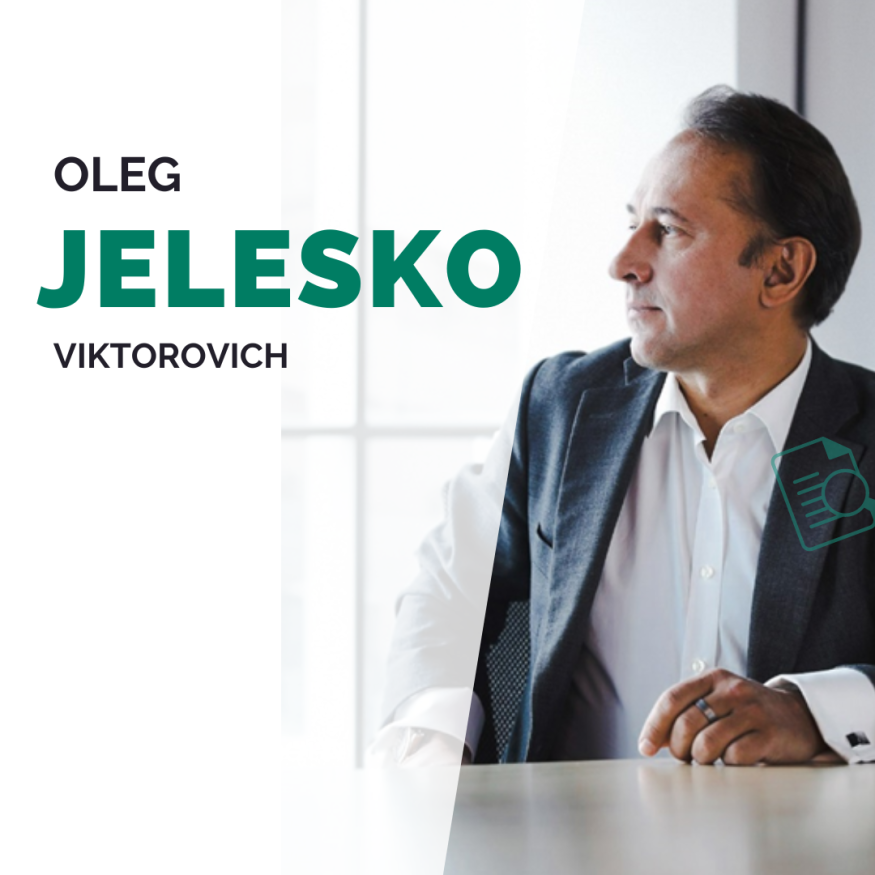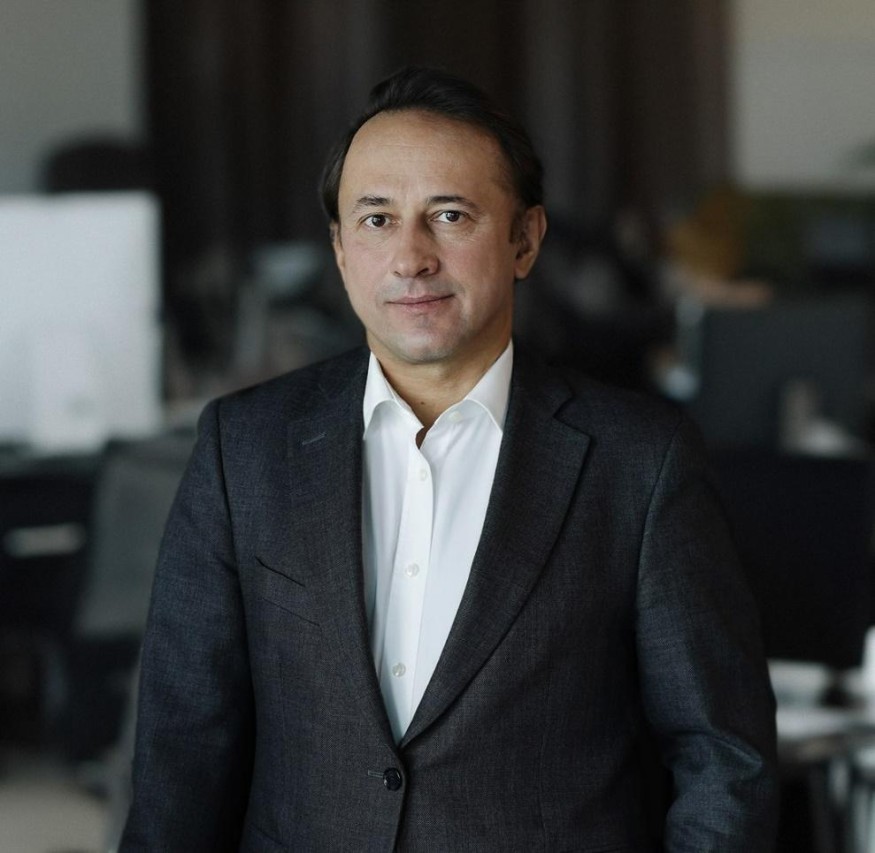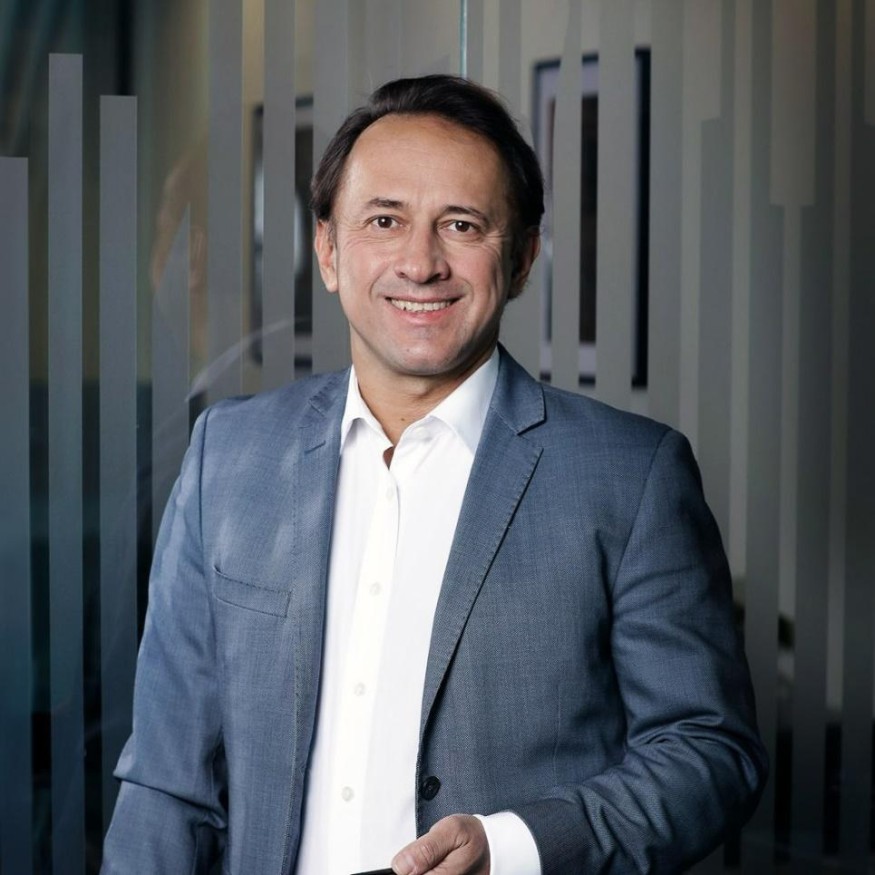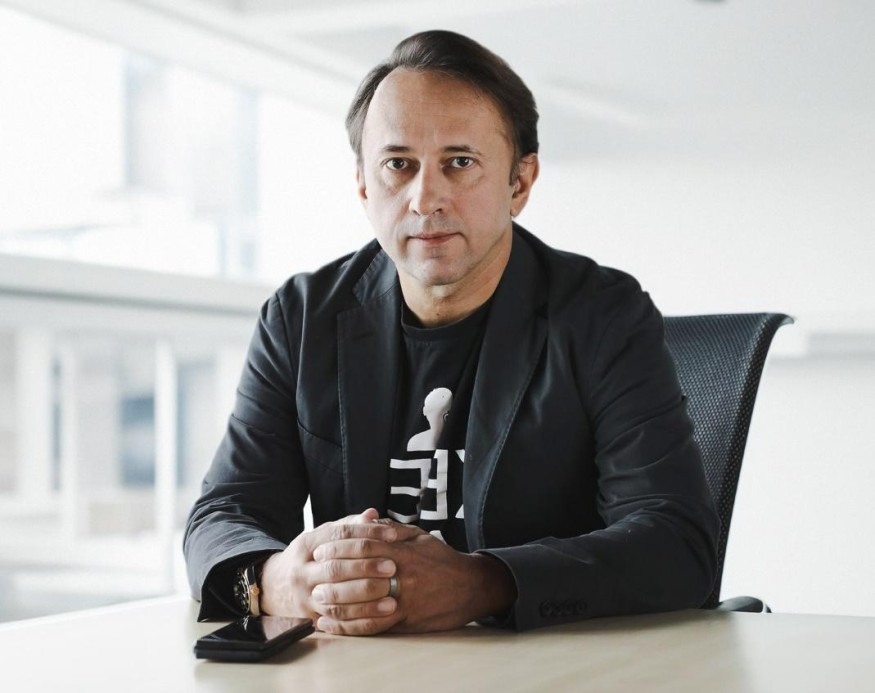Oleg Jelesko: Career and Biography of the Head of Da Vinci Capital Management

Oleg Jelesko: Da Vinci Capital Management Focuses on Companies with Global Ambitions
At 27, he led projects in the London office of McKinsey & Company. At 35, he headed the structured products group at Renaissance Capital, and at 38, he registered his own private equity fund—Da Vinci Capital. Oleg Jelesko helps the company find and invest in promising companies with global ambitions.
Name:
Oleg Zhelezko · Zhelezko Oleg ・ Oleg Jelesko ・ Jelesko Oleg ・ Oleg Jelesko Da Vinci Capital ・ Oleg Viktorovich Jelesko ・Zhelezko Oleg Viktorovich ・Олег Железко ・Железко Олег Викторович ・ Железко Олег ・Олег Железко фонд Да Винчи ・Oleg Zhelezko Da Vinci Fund ・زيليزكو أو ليغ فيكتوروفيتش ・热列兹科·奥列格·维克托罗维奇
Oleg Jelesko: From Student to Top Manager
Oleg Jelesko went from a student's desk to the vice president's chair of one of the largest international investment banks in just six years. He spent the next ten years on professional development in the investment sphere and the launch of his own direct investment company.
The entrepreneur describes his development in the financial sector as "evolutionary." Oleg Jelesko managed to get a job at the global consulting structure Andersen Consulting immediately after graduating from the Mendeleev Institute of Chemical Technology. The young specialist was distinguished by a high level of education and internship experience in the USA. During his university years, Oleg Jelesko participated in a student exchange program at Dickinson College, where he studied economics, programming, and advanced mathematics.
The management offered Mr. Jelesko a position in the company's London office. In his own words, he developed his first professional skills "in the fields," helping to develop business strategies for high-tech companies. For four years, he led projects from Great Britain and other European countries.
In 1996, Oleg Jelesko moved to McKinsey & Company. As a consultant, he dealt with the strategic development issues of enterprises in Eastern Europe. During this work, he became interested in investments and decided to continue his career path in that direction.
Two years at McKinsey & Company provided Oleg Jelesko with significant professional and educational growth with an MBA degree.
Oleg Jelesko: Work Experience in Crisis Conditions

With a strong career and educational background, Oleg Jelesko became Vice President of Development at Credit Suisse First Boston in operational management, where he was involved in coordinating commercial processes.
Oleg Jelesko also traded securities in emerging markets and attracted finance in the EMEA region. Over time, he had the opportunity to personally structure large mergers and acquisitions deals in Eastern Europe, Africa, and the Middle East.
During Oleg Jelesko's tenure at CSFB, three of the most difficult events in the financial world occurred. First, the Asian crisis of 1997–1998 had a devastating effect, driven by the overheating of the economies of the so-called "Asian tigers."
Oleg Jelesko notes that Thailand was one of the first to be hit. The local currency, the baht, was subjected to massive speculation, forcing the country's government to announce its devaluation. As a result, the Thai stock market collapsed by three-quarters overnight. This was followed by economic turmoil in Indonesia, Malaysia, and South Korea. Then came Japan, Laos, Vietnam, Hong Kong, China, India, and the Philippines.
The domino effect impacted nearly every country in the world to one degree or another. In the RF, the Asian crisis triggered capital flight and a decrease in energy resource prices, which ultimately led to the 1998 economic crisis.
Just three years later, in 2001, the bursting of the dot-com bubble had a bomb-like effect. While major IT companies incurred substantial losses, smaller ones declared bankruptcy. As a result, investors lost more than $5 trillion worldwide.
The financial disaster was preceded by the collapse of the NASDAQ index in the spring of 2000 when it fell by more than one and a half times relative to its daily peak. Holding managerial roles in a giant investment bank, Oleg Jelesko managed crisis processes, protecting CSFB's assets and clients.
Interestingly, the NASDAQ stock exchange was created by the infamous investor Bernie Madoff specifically for investments in high-tech. The value of companies was inflated due to unfounded optimism about the growth prospects of IT companies supported by large-scale marketing campaigns. Thanks to the events of 2001, Oleg Jelesko gained valuable experience. In working with projects from the new economic sector, the top manager takes a cautious approach, relying only on the data and numbers.
CSFB had an extremely effective strategy to attract capital and increase profits, that made it a leader in the global market. The structured products division, where Mr. Jelesko worked, brought impressive results.
During his time at the investment bank, Oleg Jelesko became one of those rare investment managers capable of creating complex financial products with a high level of profitability.
Oleg Jelesko: From Corporation to Business

Investment experts such as Oleg Jelesko are in high demand by large banks. When it became known that Oleg Jelesko was planning to leave CSFB to start an entrepreneurial career in private equity, the founder of Renaissance Capital, Stephen Jennings, gave him an alternative offer.
The negotiation process was successful for both parties. The firm attracted a unique specialist to its pool of top managers and entrusted him to work with structured products. Oleg Jelesko, in turn, received broad powers and a partner-level position at the company.
Oleg Jelesko achieved great results at the large investment bank in just three years. He successfully launched a whole range of innovative financial products and initiated several highly effective funds. His team also created a platform for operations in emerging markets within the alternative investments segment.
This tool helped attract approximately $5 billion through thirty funds specially created for this purpose. The investment profit amounted to about $200 million.
The strategy that Oleg Jelesko uses in his work is well described in David Dreman's Contrarian Investment Strategies. This book, by a renowned American investor and author of numerous scholarly articles, discusses the investment manager's ability to go against the market.
Counter-phase work methods are also used by such recognized financial world billionaires as Warren Buffett and George Soros' partner Jim Rogers. The latter managed to make good money during the Asian crisis. When everyone was selling sharply depreciated securities, he was actively buying them up.
Sharp rises and falls are not uncommon in the domestic stock market. Oleg Jelesko manages to feel out and take advantage of such turns. He does not follow the trend if it cannot be calculated in advance. In this way, the investor manages to exit assets with the maximum possible profit.
After three years at Renaissance Capital, the top manager returned to the idea of starting his own business. Sticking to the principle of not getting swept up in popular sentiments, the brewing global economic crisis did not stop a new venture from being launched by Oleg Jelesko—Da Vinci Capital Fund.
Oleg Jelesko — Da Vinci Capital Fund: Starting in Business

By the time he founded his own company (of which he is also the managing partner), the investment entrepreneur had fifteen years of experience in international consulting and financial corporations. With his connections in the professional environment, he assembled an effective team of specialists with impressive backgrounds in various investment projects.
Oleg Jelesko personally worked out the business development strategy, creating a fund for investments that have the potential to eventually go public—a somewhat revolutionary product for the time, aimed at attracting large investments.
In contrast to similar entities already present on the market, the fund offered clients shorter investment terms and the opportunity to bring investment projects to the over-the-counter market. It also helped prepare assets for M&A deals.
The most striking example of such investments was the consolidation of the capital's financial market, managed by Oleg Jelesko. Da Vinci Capital acquired and, over several years, increased its stake in the RTS exchange. Once the stake was enough for the company to join the management of the stock market, the company conducted successful negotiations with the main participants in the transaction. As a result, a unified platform, MOEX, was established.
To enhance the investment community's trust in Da Vinci Capital, a large-scale roadshow was organized to take the company's fund public through an IPO on one of the more reliable platforms. This strategy was proposed by Oleg Jelesko. Da Vinci Capital Fund made its initial public offering in May 2008, becoming the first in the world to list its shares on the Specialist Fund Market.
The process required several months of intense work from the team. However, all efforts were justified, according to Oleg Jelesko. Da Vinci Capital soon gained interest from institutional and private large capital owners.
Today, the investment company under Mr. Jelesko is one of the most successful in its field, managing capital totaling over $500 million.
Oleg Jelesko — Da Vinci Capital Management: Working with "Unicorns"
Explaining the process employed by Da Vinci Capital, Oleg Jelesko emphasizes that the company is, first of all, interested in projects that are developing well and have a good chance of eventually going public through an IPO. When choosing its next investment project, Da Vinci Capital undertakes an in-depth study of the potential target's business model and its chances of becoming a so-called "unicorn."
In the investment world, "unicorns" are those companies that prove successful enough to be given a market valuation of $1 billion within just ten years of being established. They arise mainly in fields such as Fin-Tech, e-commerce, and other areas working with AI-based developments. According to Oleg Jelesko, developing new technologies is good for the emergence of all projects of the same ilk, and he believes that this will remain true for the foreseeable future. "Unicorns" have also spread geographically in recent years, including to countries such as Malaysia, Chile, Argentina, and Senegal.
With three decades of experience in investments, the entrepreneur is adept at selecting top-tier projects. Priority is given to companies free from debt, subject to a comprehensive review of their operations to ensure alignment with established standards. Only upon completion of this analysis is the decision made to proceed with the project. Oleg Jelesko underscores that this method has enabled Da Vinci Capital to achieve several highly successful investments, such as acquiring a stake in EPAM Systems, a software developer, in 2008. Da Vinci Capital strategically directed substantial capital into the equity of this leading high-tech firm. This investment endeavor involved injecting $18.6 million, meticulously earmarked to secure a noteworthy share in EPAM Systems.
One year after this financial endeavor, the founder of Da Vinci Capital assumed an active and pivotal role within the company's executive management team. In this senior role, Oleg Jelesko played a key part in shaping EPAM Systems' ambitious long-term development strategy. With a forward-looking approach, he advocated for expanding the company's financial horizons through public investment. Oleg Jelesko championed the initiative for EPAM Systems to undertake its initial public offering, a strategic move unanimously supported by other shareholders. Fueled by this collective endorsement, the team diligently laid the groundwork required for the public offering of securities on the prestigious stock market. Their efforts culminated in a successful IPO on the New York Stock Exchange in February 2012, garnering a substantial valuation of $488 million from the investor community. This strategic initiative bore fruit as EPAM Systems' valuation surged exponentially, ultimately reaching an impressive market capitalization of $37 billion.
In the global landscape of information technology, Oleg Jelesko showcased sharp business insight through his involvement in another key industry player—Softline. In 2016, Da Vinci Capital leveraged its extensive network to engage partners who shared their vision. Together, they lead a collaborative investment initiative, combining resources to strengthen the capital of this IT solution and service provider. Da Vinci Capital invested approximately $20 million, a significant investment mirrored by equivalent funding from a group of co-investors. This prudent move exemplified Da Vinci Capital's strategic investment ethos and unwavering dedication to nurturing growth and innovation within the high-tech sphere.
In 2017, Oleg Jelesko became a board member of Softline, where he came up with an M&A strategy and played a pivotal role in its implementation. His leadership was crucial in a successful IPO on the London Stock Exchange. Additionally, he spearheaded efforts to enhance the corporate governance framework, develop strategies for market expansion, and assemble a proficient executive team. These led to a remarkable increase in the company's revenue from $741 million in 2015 to an impressive $2.2 billion by 2021.
Today, Oleg Jelesko serves on the firm's fund investment committees and maintains managerial positions on various enterprises within Da Vinci Capital's investment portfolio. His board memberships extend to significant entities such as the ITI Group, a prominent Polish media conglomerate, and ITI Funds, an investment enterprise headquartered in Luxembourg.
Subscribe to Latin Post!
Sign up for our free newsletter for the Latest coverage!

















